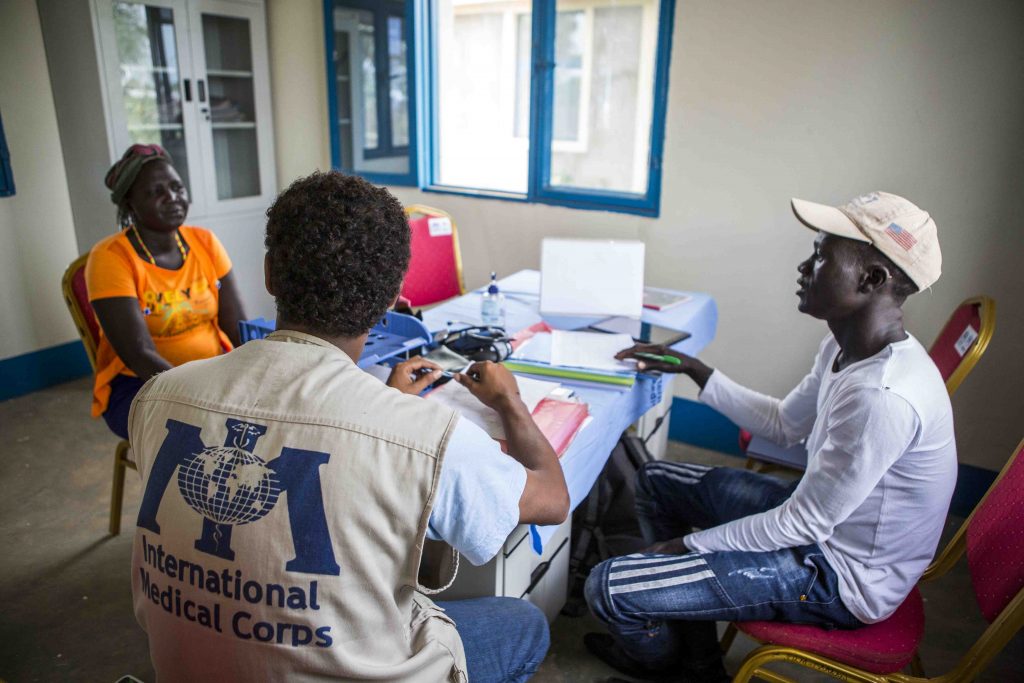Even in the most advanced industrialized countries, mental health can be quite a taboo issue. In developing countries? It can be virtually nonexistent, with an average of one psychiatrist for every two million people. Things are starting to change, however—thanks in large part to people like Esubalew Haile, a psychiatrist from Ethiopia and Mental Health Specialist for International Medical Corps.
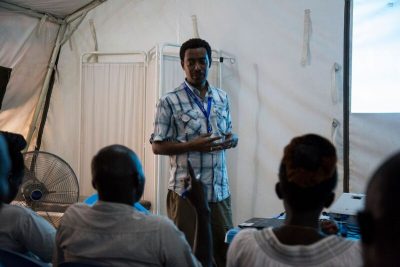
Life for Esubalew has always been “so attached to refugees and displaced people.” He grew up in southern Ethiopia, not far from where International Medical Corps works with Somali refugees today. Living most of his childhood among Somali refugees fleeing extreme violence and hunger, Esubalew could appreciate even then the importance of mental health for people exposed to extreme stressors. He played with the children of refugee cattle keepers and witnessed firsthand how the Ethiopian host population treated them, and how especially vulnerable people with mental illness are in a situation of conflict and displacement.
Esubalew’s “intrinsic feeling to work with most vulnerable and socially disadvantaged refugees” drove him to medical school as a young adult. He obtained his doctorate degree in medicine from Addis Ababa University and returned to where he grew up to work as a general practitioner and emergency obstetrician near the refugee camps. But he quickly saw the enormous gap in services for those with mental health issues—and that this massive problem affects not only individuals, but also caregivers, entire families and the community at large. Realizing that “we didn’t have enough trained people working in this area” and drawing inspiration from a medical school mentor, Esubalew decided to go back to school and successfully completed a specialty residency program in psychiatry.
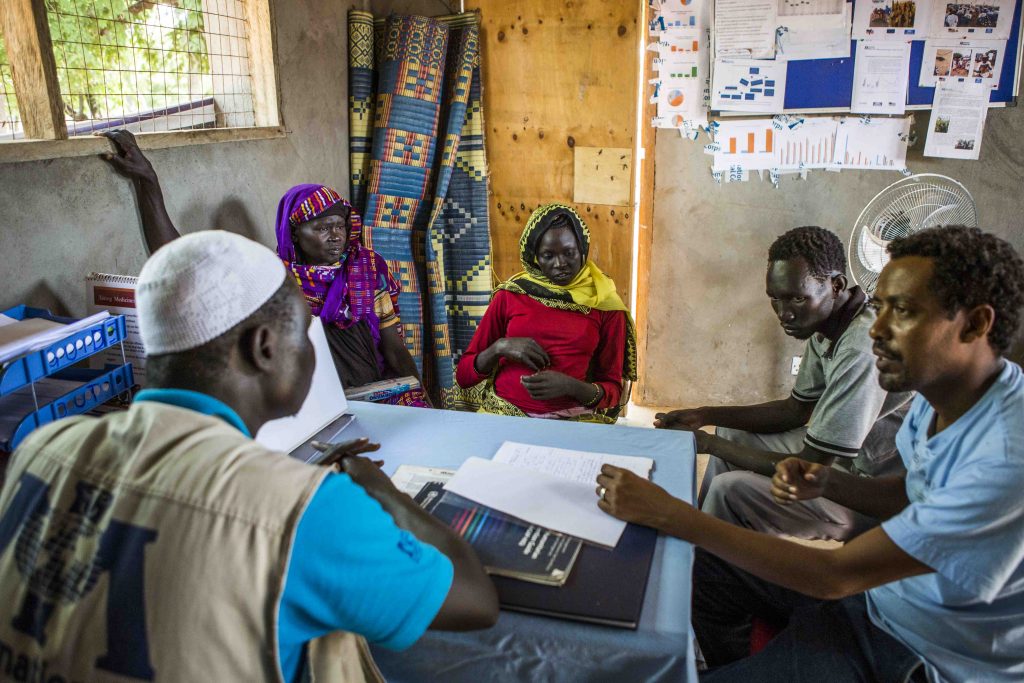
After completing his psychiatric residency, Esubalew worked at a teaching hospital near Addis Ababa, providing clinical mental health services and teaching medical students. In 2012, he joined International Medical Corps as a Mental Health Program Manager in Dollo Ado’s Somali refugee camp, helping establish unprecedented mental health care in the refugee camps. In the camps, it was “like starting from scratch,” with minimal awareness existing for the modern treatment of mental disorders.
In his early days in the camp, Esubalew found a man with mental health issues chained up—this being a common way of dealing with mental health at the time. Esubalew and his colleagues integrated mental health services into the camp’s health facilities, trained health workers and worked to raise awareness among refugees. That same man Esubalew found chained up received treatment and began moving freely in the camp. His father, seeing his son transformed, became a big advocate for International Medical Corps’ mental health work.
For the past four years, Esubalew has been working as a Mental Health Specialist in some of the most difficult-to-reach areas in South Sudan—places that never had mental health services before. When he first got to South Sudan, there was an “extreme lack of services.” Most of the mental health cases in the country were referred to one hospital in Juba, which had an 11-bed capacity. In a country of 12 million, there is only one practicing psychiatric registrar, so finding staff was extremely difficult. To fill the gap, Esubalew recruited refugees and internally displaced persons (IDPs) as volunteers, and conducted a ton of training and supervision to build the capacity of national staff.
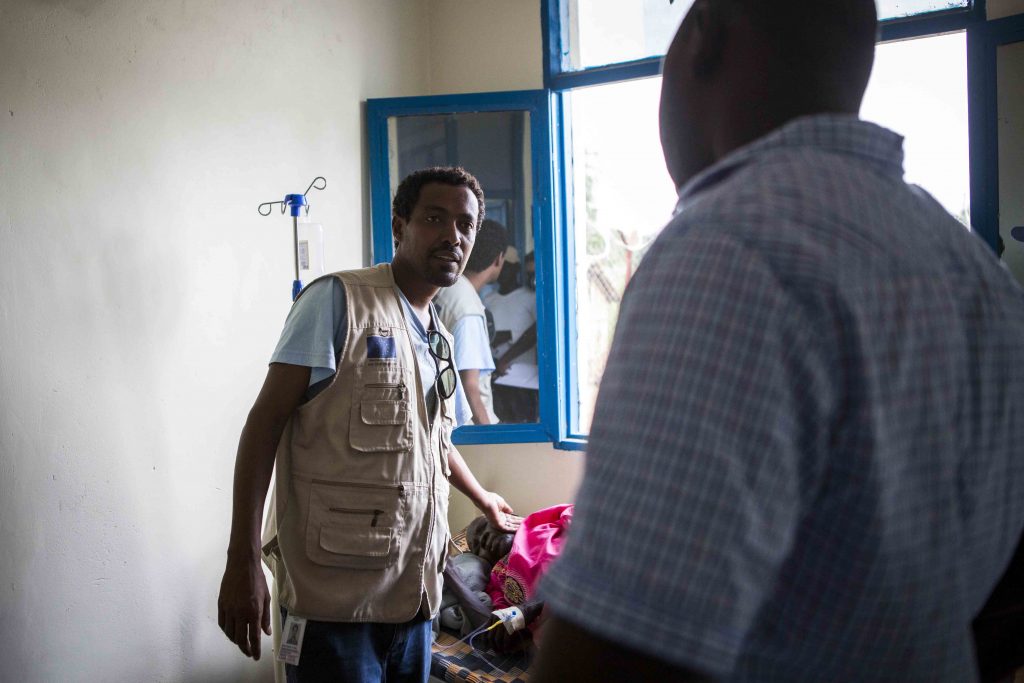
Today, International Medical Corps is supporting seven health facilities in South Sudan– two hospitals and five primary healthcare centers —and we have integrated mental health into all of them, as well as in refugee and IDP contexts. Esubalew reports a significant improvement in the coordination and mapping of services countrywide over the past four years due to International Medical Corps’ mental health interventions. He is currently co-chairing the Mental Health and Psychosocial Support Services (MHPSS) Working Group at the national level in Juba. For Esubalew, it is important that mental health workers in South Sudan be future leaders in the country.
The mental health capacity in South Sudan is still quite low and there remains a lot of work to be done for non-mental health specialists to make it the priority it needs to be. “Refugees need more than health care—they need protection,” says Esubalew. As for those with the added burden of mental illness: “It’s so disappointing that there is a tendency to ignore this most vulnerable group of people amongst refugees.” Nonetheless, things have and continue to improve.
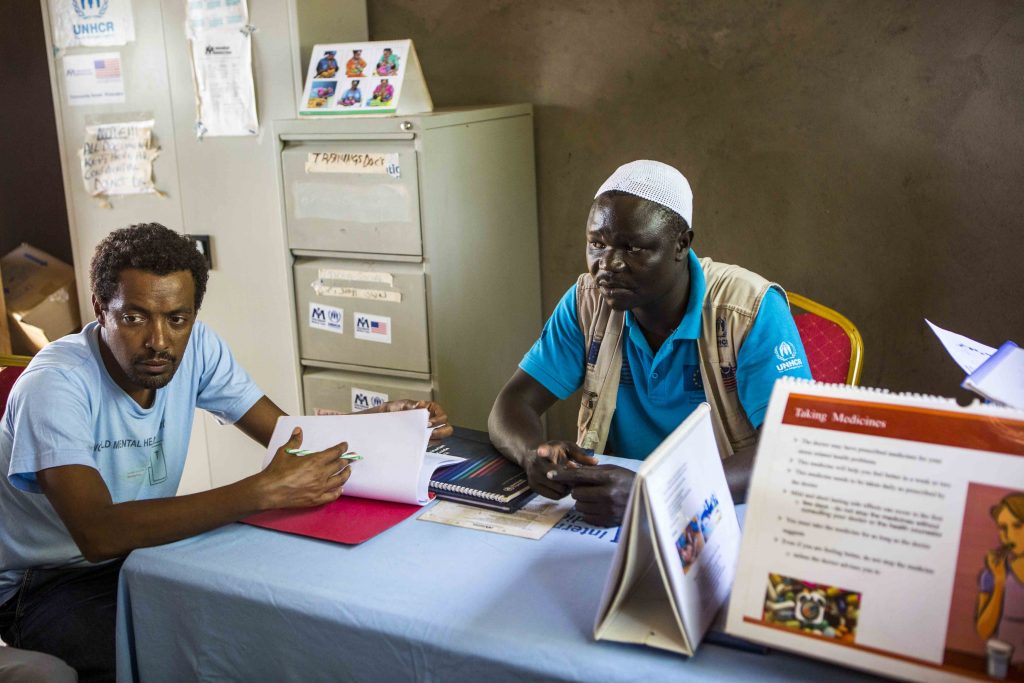
Esubalew has seen people who are normally put in prison instead receiving mental health care; students who were forbidden from attending school now becoming the best in their class; caregivers with extreme depression recovering and supporting their families. “The changes are quite visible,” says Esubalew. “We’ve gone from nothing to really something.” In 2017 alone, 853 individuals enrolled in International Medical Corps’ mental health program. Their recovery benefits not only them, but also their families. “If International Medical Corps wasn’t there,” says Esubalew, “these people would have suffered greatly.”
International Medical Corps began working in the conflict-ridden region of South Sudan in 1994, nearly 20 years before a 2011 national referendum led to the southern-most states of Sudan becoming an independent state. We work with the Government of South Sudan to strengthen local health care capacity in 5 of the country’s 11 states and deliver comprehensive health services to nearly half a million South Sudanese.
